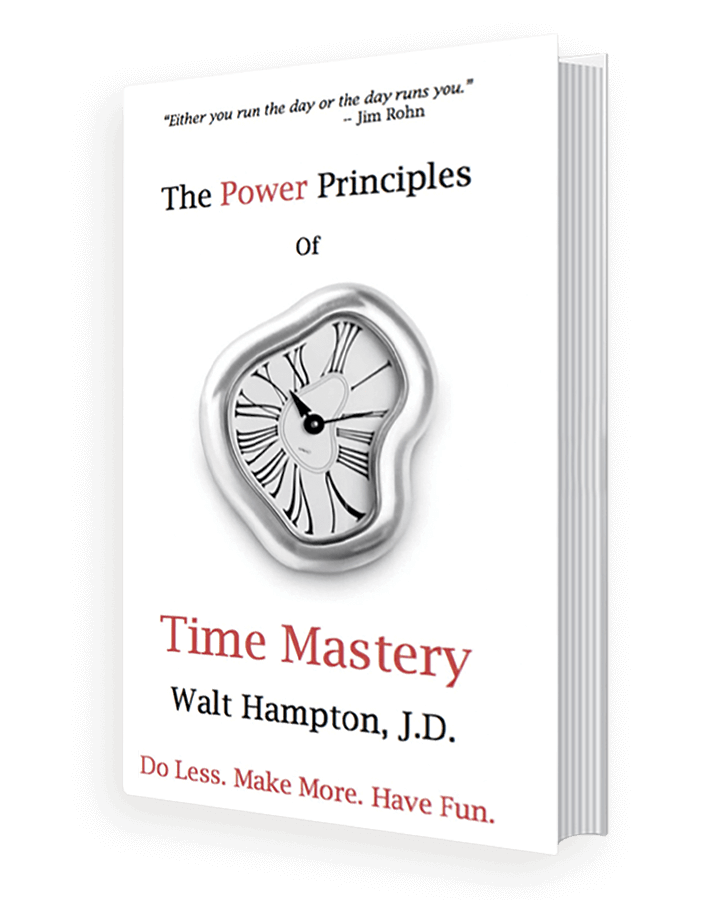Why do so many of us have a love affair with the iPod™, the iPhone™, the iPad™?
Because Steve Jobs believed so passionately in elegant simplicity.
“Simplicity is the ultimate sophistication,” Jobs said.
“Simple can be harder than complex: You have to work hard to get your thinking clean to make it simple. But it’s worth it in the end, because once you get there, you can move mountains.”
Simple is powerful. Simple is good.
And yet, for so many folks, complex is their place of default.
We see it frequently among our coaching clients when they confront business challenges. They immediately want to:
• Add personnel
• Build out infrastructure
• Supplement their technology
• Create more layers
Now, there’s nothing intrinsically wrong with leverage or growth. The problem is the potential for the complexity they cause.
Small businesses and solopreneurs often have great advantage over larger enterprises because they are more efficient, fleeter of foot; more able to bob and weave and adapt to change.
They’re clearer about their visions, their missions, and the problems they solve.
They can craft their cultures and engage their teams more mindfully.
They’re more deft at nurturing passion and focus, which brings with it clarity of outcome.
Larger organizations, because of structural constraints like committees and policies and procedures, have the propensity to be less creative, more cumbersome, and rote.
And with layers and structure come fixed cost and overhead.
With big, the business model can become complicated. You need to be able to describe your business to your 8th grade daughter or your nephew in a way that he or she can understand it. Because, if they can’t understand it, how will your customer?
Big, too, can become confusing in terms of mission and purpose. As a business grows, it becomes harder to convey and sustain the founding vision, the original passion, and the fundamental cultural values.
Effecting change in a large complex enterprise, especially in times of crisis, can be like turning a supertanker from the crashing waves of a reef: laborious and slow and fraught with danger.
Big can also take on a life of its own, which may be good if you’re planning successive generations of management; or are creating a model for passive income; or are growing your business to sell it But if you envision wanting to escape someday, big may not be so good. One surgeon that I know would love to retire; but he has no clue how to disentangle himself from the equipment leases, the machinery, the phone systems, the layers of personnel and the crushing burden of malpractice insurance. He is a prisoner in his business, a hostage to the hungry “monster” he has built.
Often one of the fundamental reasons that business fail, according to Jim Collins, author of the business classic Good to Great, is because of “the undisciplined pursuit of more.” Greg McKeown, author of the recent best seller Essentialism, suggests that, in the alternative, success comes from “the disciplined pursuit of less.” 
So next time you hit a speed bump, instead of automatically seeking to add something to the mix, why not ask instead,
• What should I be doing less of?
• What should I eliminate?
• What should I make simpler and easier?
Simple became an obsession for Jobs. It’s not a bad one to have.




0 Comments